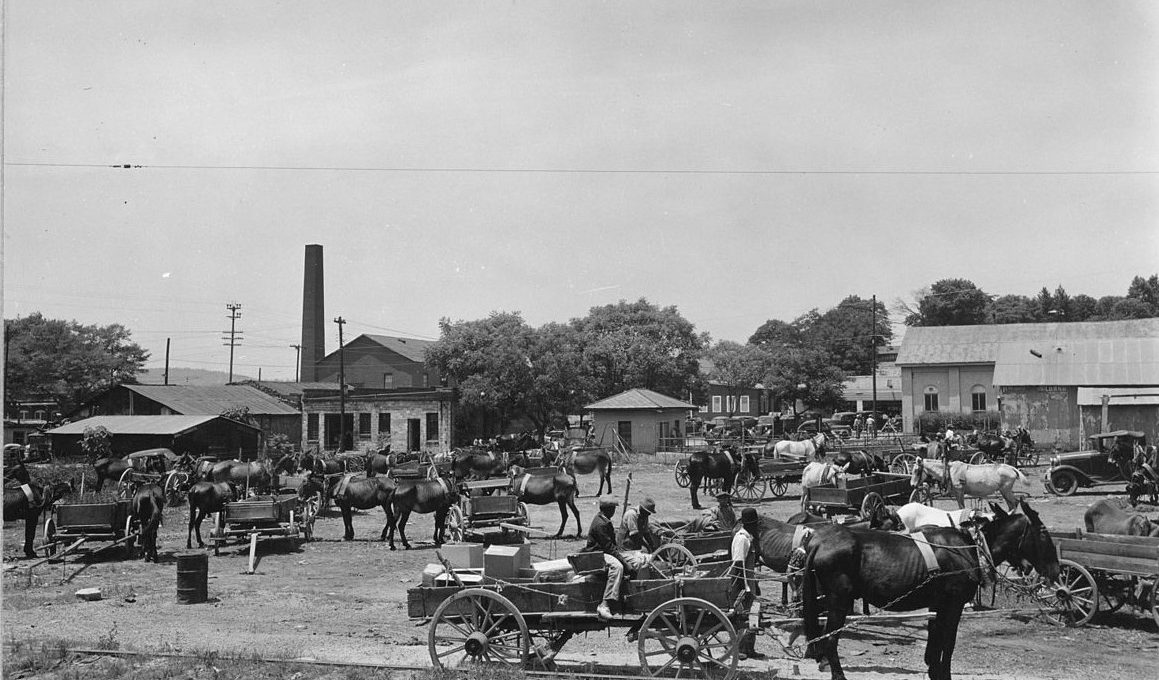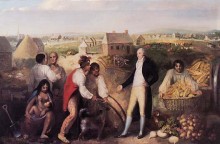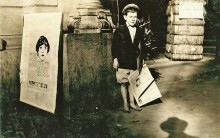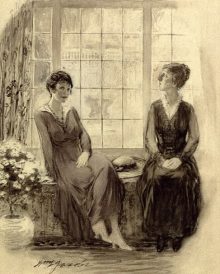PIONEER TALLADEGA, ITS MINUTES AND MEMORIES
CHAPTER XXVIII
The story of the desperate struggle of the people of this county during the Civil War will never be written—no pen is adequate to the task—and yet it should not be relegated to oblivion without some slight chronicle of its stress and suffering. A memorial to Thos. Watts, Governor of Alabama, adopted at a public meeting of the people of Talladega on April 4th, 1864, gives a brief glance at the conditions of that dark and hopeless time. Hon. Jno, T. Heflin presided at the meeting and Cap’t. Jos. Hardie was secretary, and Hon. L. E. Parsons, explained the object of the meeting.
Become an Alabama Pioneers Patron today and share your information through chats and comments with other Alabama Pioneers Patron members.
Among other statements made in the memorial the following is quoted: “This county has furnished 27 companies of volunteers for the war. These were raised under a pledge publicly given that the citizens would raise, if necessary, twenty thousand dollars a year to aid in supporting the families of those who needed assistance, at that time (May, 1861) there was a’ white population in the county of about 14,643 persons, and a slave population of about 8,865, and there were only thirty persons who needed and received aid from the county. Now, there are three thousand nine hundred and ninety-seven (3,997). The county is divided into what is called the “valley” and “hills,” A large proportion of these volunteers came from the hills, and these 27 companies are exclusive of those who have volunteered in other organizations, furnished substitutes, or been enrolled.
The slave population is in the valley and the men who have gone from the hills have left at home none to plough a furrow, or to hoe a hill of corn except their wives and little ones. They are, therefore, dependent for support on the supplies raised In the valley. During 1863, the people of the county under the pledge aforesaid, raised and placed in the probate judge’s hands for distribution, $7,276 cash; 21,755 bushels of corn at 50 cents per bushel; 2,570 bushels of corn as a gift; 928 bushels of wheat at $2. per bushel;-102 bushels of wheat as a gift; the average price of wheat, corn and salt is much above these prices. The average price of wheat this season has been about $10 per bushel; corn about $3 per bushel and salt about $80 per sack. The committee states we will be unable to meet the just claims, the absolute necessities of these families unless they are permitted to employ the slave labor for that purpose.
“On December 23rd, 1862, ninety negroes were impressed in this county. On January 29th, 1863, 120 negroes were impressed. On March 7, 1863, 150 more negroes were impressed, and five wagons and teams. In the fall of 1863, 160 more negroes were, impressed. In August, 1863, about 100 negroes and teams were impressed and sent to Montevallo to haul coal and iron. In February, 1864, 160 more negroes, who are now in Mobile. In August 1863, 75 horses were impressed. Within a few days past Captain Graham, under order from Lieutenant Gengral Polk, has been here and has impressed about 160 horses and 100 mules, claiming and exercising the right to take every seventh mule. Moreover, a large proportion of the work oxen of the county have been obtained for the use of the Confederate government. Large bodies of cavalry are recruiting their horses at various points in the county, and thus consuming the tax in kind.
“The season has been backward, and corn that has been planted will have to be planted over again.
On the 2nd inst, (April) a new order arrived to impress 160 more negroes and have them ready by the 17th of the month.
“The premises considered, the undersigned respectfully request an order from your Excellency to, General Polk exempting this county from further impressment this season. (Signed) L. E. Parsons, Chairman, Taul Bradford, W. R, Stone, Alex White, C. G. Cunningham, J. L. Elston, John Sawyer.)
The impressment circular of; General Polk is published in the same issue of the paper containing the account of the meeting. General Polk had his headquarters at Demopolis, and was commanding general of the Department of Alabama, Mississippi, and East Louisiana. The circular is couched in terms so arbitrary, unjust and tyrannical, that nothing but war would justify such language or measures.
As a last resort the “Confederate Congress provided for the enlistment of slaves as soldiers, and, pursuant to that act, Brigadier General John T. Morgan, afterward United States Senator, was assigned the duty of organizing these slaves in Alabama. His letter on the subject is printed in the Alabama Reporter of April 13, 1865, being dated Montgomery, Ala., April 7, 1865.
General Morgan says he has authority to designate recruiting stations and to appoint recruiting officers. Talladega was named as a recruiting station. One-fourth of the slave population between the ages of 18 and 45, only, were subject to enlistment. The title of the owner in the slave was not effected by his enlistment. The same pay, rations, and clothing was allowed as for other troops in the same line of service. Says General Morgan in his circular: “Our slaves will make good soldiers if properly cared for and well handled: they fight for us, and with us with a faithfulness and devotion peculiar to their characters.”
Fasting and prayer, the last refuge of the despairing, was officially ordered when the Confederate congress on January 16, 1865, asked President Davis to appoint a day of public fasting, humiliation and prayer, with thanksgiving to almighty God. Says President Davis, in appointing March 10th as the day: “Let the hearts of our people turn contritely and trustfully unto God. Let us recognize in his chastening hand the correction of a Father and submissively pray that the trials and suffering which we have borne so long and so heavily borne upon us may be turned away by his merciful love. That the Lord of Hosts will be with our armies, and fight for us against the^ enemies and that He will graciously take our cause into his own hands.”
This proclamation and injunction was strictly followed in Talladega. There was an all day prayer meeting at the Methodist church under the leadership of Revs. Daniel Duncan and R, B. Crawford, the prayers beginning at sunrise, A sermon at both the Baptist and Methodist churches was preached at 11 o clock, in each of which many prophesies and texts were quoted to show that the Confederate cause would yet receive the aid and help of the Almighty. But the closing days of April, 1865, showed the futility of such predictions. Friday, April 21, 1865, just five days before Johnston’s surrender to Sherman, and eleven days after Lee’s surrender, the second Yankee raid visited Talladega.
The Alabama Reporter of April 27, which was then issued on one single sheet of paper, with five columns of printed matter on each of its two pages, record the details of the raid thus:
“THE RAID”
Our town has been visited by another party of Yankee raiders. On Friday night, last, it was ascertained that the Yankees were crossing the Coosa river at Collins and Truss ferries, and it was believed would reach Talladega that night. They were delayed in crossing the river and did not enter the town until Saturday evening (afternoon). Colonel Hughes, with about 100 men, met them near town and, after a short skirmish, fell back through town, the enemy pursuing at a pretty rapid rate.
“The raiding party consisted of a brigade of cavalry under General Croxton, numbering about 2,100. Our county jail, the railroad depot, government depot, conscript camps and the nitre sheds were burned. The stores were broken open and robbed. Many of our citizens suffered severely in the loss of mules, horses and other valuables. Some negroes went off with them, but not a very large number. Most of the private residences in town were entered, and searched for valuables. All the watches, silverware, plate, etc., that had not been previously removed, was taken, and carried off. Colonel Hugh Caperton, formerly of DeKalb county, a most estimable man, and exemplary citizen residing about five miles from town, was shot through the window of his own home, by one of a squad of Yankees, and died almost instantly. No cause can be assigned for the cold-blooded, and wanton act. Major G. P. Plowman, mayor of the town, was knocked down with a gun barrel, and was severely injured by a crowd who were endeavoring to extort from him money, which a negro had told them he had concealed. They subsequently returned for the purpose of hanging Mr. Plowman, but he succeeded in effecting his escape. Mrs. X. Willman, a worthy lady, was choked down, and compelled to bring, and deliver, a little bag of gold and silver, the savings from the hard earnings of years.
“The commissary building was not burned, the stores having been turned over to Judge Thornton, Hon. Wm. H. Thornton, our Probate Judge, to be distributed to the poor of the county. The Judge is executing the trust in good faith. A quantity of bacon was consumed by the burning of the tax-in-kind depot. At Mrs. Curry’s, six miles from town, they burned some cotton, the old store house and a crib containing about 1,000 bushels of corn. The iron establishment of Clabaugh and Curry was destroyed, as were the other iron establishments in the neighborhood of Oxford, Calhoun county, Alabama. The Yankees left our town on Sunday morning and moved in the direction of Oxford.
“Mr. Reece Howell, Colonel L. E. Parsons, W. W. Knox, Dr. A. P, McClellen and others lost nearly all their mules and horses.”
On Thursday morning, May 11, 1865, the Alabama Reporter, edited by Cross and Cruikshank, with a motto: “Justitia et Veritas,” and twenty dollars in advance, officially announces that the war is over. Many old subscribers of this paper could not have been convinced of the ending of the war in any other way. That paper said, editorially: “Alabama, with all the territory east of the Mississippi, has been surrendered to the Federal authorities.
The war may be regarded as over. The question is frequently asked as to what should now be done. Our advice is that the people should remain quietly at their homes and apply themselves diligently to the culture of crops necessary to the sustenance of man and beast. It will be difficult to raise sufficient grain to supply the county. Confederate money will no longer circulate, and people can barter one commodity for another.”
Do not suppose for a moment that this tremendous announcement paralyzed the men of Talladega county. They yet lived, especially those who wanted to fill offices. This same issue contains an average crop of announcements for office. M. J. Bulger announces for governor, M. H. Cruikshank says in print that he is a candidate for congress, For senator: L. W. Lawler, Jas, W. Hardie. For representative: W, D. Steed, Lewis E. Parsons, Maj. Geo. P. Plowman, Jno. A, Winnbourn, Augustine Moss, Dr. John Garrison, For sheriff: James T. Dye, Arthur Bingham, For tax assessor: Jas. A, Hogan; For tax collector: M. S. Bennett, W. W. Wilkins. For county commissioners: George Riser, Saml. D. Watson, Meritt Street, E. C. Turner, L. M. Burney, John Sawyer, R. M. Henderson, Jesse Hardin. The election to be held the first Monday in August.
It was supposed at this time by these candidates that Alabama would be taken back into the Union, and the state and county affairs administered by persons then in office, and to be by the people, but the, military government superseded this.
Brevet Brigadier General M H. Chrysler, on May 24, 1865, announces the occupation of Talladega by the Union States forces, for the preservation of good order, the protection of citizens, and to enable the people to obtain supplies for their families. The regiment quartered here was the Fourth New York Cavalry, The staff of General Chrysler was Robt. Barber, adjutant; G. W. Becker, provost marshall; C. Dolan, outpost officer; C. W. Johnson, A.A.Q.M.; S. F. Taylor, A.C.S.; Lieutenant H. D. Doty, A.C.O. On June 1st a train on the Alabama and Tennessee River Railroad (Southern) again began to run, bringing in a budget of newspapers and letters—none of them later than April 1st. The local papers hoped that the postoffice would again be opened in a short while.
In General Order, No. 3, General Chrysler notifies the “Colored population of Talladega, and vicinity, that they will not be allowed to straggle about the country.”They are advised “to remain at home and raise com to feed their wives and children. All unemployed persons of this class will be organized and worked in the Quartermasters Department. Any pilaging will be severely punished.”
It was necessary for all former Confederates soldiers to be paroled before Provost Marshall Captain Becker. By June 15th 6410 officers and enlisted men had presented themselves at the provost marshals office in Talladega and had been paroled. Of course not all of these troops were from Talladega county, but were portions of scattered commands passing through to their respective homes.
At first the advent of these Federal troops as a garrison was looked upon as a misfortune, and as a humiliation, by our citizens, but this feeling wore off as time passed and it was seen that the Northern soldiers were really a protection to us during these unsettled and disorganized times. One incident, in September, 1865, tended to inspire a better feeling for the soldiers by the citizens. The home of Dr. A. I. McAlpine caught fire on Sunday, which, when it was discovered by the soldiers, many of who were fire-fighters, they literally covered the roof and balconies with men, organized a bucket brigade, and put out a fire that the citizens could not have handled. The local papers grudgingly gave the Yankees praise for their efforts, and then proceeded to howl for the town to buy a hand fire engine. The Reporter philosophically remarks after a half column description of the fire: “The few old pails, and buckets that can be hunted up, after an alarm is given, is a poor dependance for a fire department in a town of 2,000 inhabitants. We have again and again called attention to this during the past ten years. We do not suppose that all the citizens of the town put together have money enough, now, to buy even a small fire engine, but if they are ever able to do so, they ought, certainly to make some provision for extinguishing fires.”
During the war the post office was situated in the middle of the block on the west side of the square, Postmaster Isaac Estill serving as custodian of the mail for four years previous to the war and during its continuance. In September, 1865, James Lawson was appointed postmaster, upon which happening the site of the office was changed to the northwest corner of the square in the rear of the Coker building. James Chetlain was the U. S. Army postmaster, the said Chetlain advertising that the mails would leave Talladega Tuesdays and Thursdays of each week, and that all citizens’ mail, if left in the city postoffice, would be sent to all parts of the United States with the military mail.
After the military occupation of Talladega, two months elapsed before Civil government, or government by state and county, was established. June 21, 1865, President Andrew Johnson appointed Hon. L. E. Parsons of Talladega, provisional governor of Alabama. Governor Parsons called a convention to make a constitution and laws for the state. Persons who were not (sic) qualified to vote for delegates to this convention were also required to swear to support the constitution of the United States. Joseph D. McCann, A. Cunningham and Jno. W. Bishop were elected by a convention in this county, as the delegates to the State convention. The same county convention recommended Jno. Henderson for circuit judge and Jno. W. Bishop for solicitor. The chairman of this county convention was Jno. W. Bishop, while William Montgomery was the secretary. Jno. C, Henderson was at this time sheriff of the county. Governor Parsons appointed N, P. Plowman, sheriff to succeed Henderson, A. W, Plowman was also appointed by the governor as commissioner, to administer oaths in Talladega county: R. W. Huston, clerk of the circuit court; W. H. Thornton, Judge of probate.
Slowly commerce began to revive and advertisements were once more seen in the newspapers. The veteran drug firm of Vandiver & Henderson, that had kept open during the entire war, announced a new stock of drugs. Jos. Hardie and Co., in Isbell’s brick corner, advertises dry goods and groceries. Leaon and Pflaumm ask patronage for clothing, hats, boots and shoes. M. H. Dysart, on east side of the square, wishes to sell: “Boots, Hats, Matches, Cotton Cards, Indigo, Salt, Hoopskirts, etc.” D. L. Anderson offers dry goods and groceries, one door above Hueys corner. T. T. Warwick, watch maker, has a card in the paper. D. A. Long has dry goods and groceries. The Baptist Male High School, with W. D. Lovett, principal, announces its opening. Drs. J. C. Knox and J. H. Johnson, physicians, offer their partnership services to the people. Todd Bros., at Story’s Corner, advertise a general stock of goods. W. H. Coker prints a list of groceries for sale. M. Solomon has dry goods on the southeast corner of the square and C. Pelham and A. W. Plowman have law cards in the paper.
SOURCE
Transcribed from – The Alabama Historical Quarterly, Vol. 16, No. 02, Summer Issue 1954
ALABAMA FOOTPRINTS – Volume I – IV: Four Volumes in One (Volume 1-4)
The first four Alabama Footprints books have been combined into one book,
- ALABAMA FOOTPRINTS Exploration
- ALABAMA FOOTPRINTS Settlement
- ALABAMA FOOTPRINTS Pioneers
- ALABAMA FOOTPRINTS Statehood
From the time of the discovery of America restless, resolute, brave, and adventurous men and women crossed oceans and the wilderness in pursuit of their destiny. Many traveled to what would become the State of Alabama. They followed the Native American trails and their entrance into this area eventually pushed out the Native Americans. Over the years, many of their stories have been lost and/or forgotten. This book (four-books-in-one) reveals the stories published in volumes I-IV of the Alabama Footprints series.





